Food: Too Valuable to Waste
December 5, 2018
A 2015 study revealed that 37% of the waste that is found in landfills is organic waste that could have been composted, and it’s estimated that about 40% of food goes to waste nationwide. In an article for The Huffington Post, Senior resource specialist of the NRDC’s food and agriculture program Darby Hoover suggested that “‘When we waste food, we not only add organic materials to landfills (where they generate methane, a powerful global warming pollutant), but we also waste all the water, land, energy, money, labor, and other resources that go into growing, processing, distributing and storing that food.’” There are nearly 1 billion people in the world who do not have access to sufficient food resources. These people could be fed by using less than a quarter of the food that goes to waste in the US, UK, and Europe.
Cities across the country are making efforts to reduce the amount of food that is going to waste. The city of Austin, Texas, has recently passed a law that aims to reduce the amount of food waste produced by the city. The law took effect on October 1, 2018. It requires all restaurants in the city to donate any unconsumed food, send food scraps to farms, or compost any other food waste. In addition to this, restaurant staff will be taught how to dispose of food in ways that are better for the environment. This law contributes to the City’s goal of becoming waste-free by 2040.
While discussing this new law, Faith Powers, a senior at Ipswich High School, stated that “The new law is really great. Food waste is a huge issue in sustainability today and in saving resources.” Mrs.LaFrance, a science teacher at Ipswich High School shared a similar opinion with Powers. She stated, “I think the new law is a step in the right direction. We waste so much food in this country and we need to start to examine the causes and come up with solutions.” As for Austin’s goal of becoming waste-free by 2040, Powers believed that “It is possible for Austin to reach their goal. As long as they keep spreading awareness and coming up with innovative ideas, they can make it happen. Hopefully, it will inspire other cities to do the same.”
Several cities have passed laws similar to the law that is in place in Austin, and the results of these laws have been dramatic. Seattle, Washington, requires all residents, buildings, and food businesses to sign up for a food waste collection service; this ensures that all food waste in the city is being properly disposed of. New York, New York, has also put laws into place that require large restaurants, restaurant chains, and food retailers to responsibly dispose of any unconsumed or unused food; this law is “Expected to divert about 50,000 tons of food waste from landfills every year” (Redling, 2018). After passing a law requiring proper disposal of food waste, the city of San Francisco, California, diverted about 80% of its total waste from landfills.
Many cities may wonder how difficult it would be to pass laws similar to these. When asked if it would be possible to pass a food waste law in Ipswich, Powers believed that “It would be difficult to pass a law such as this in Ipswich, however, it would probably take a long time.” Although it may be difficult to create town-wide food waste laws, working individually to reduce food waste could be a step in the right direction. Powers suggested that “It would be much easier to implement this into IHS since we are a very environmentally cautious school.” Mrs.LaFrance agreed, adding on that “I have often thought of all the food that doesn’t get eaten in our cafeteria and how we could be doing good with it … Right now, our food waste is composted which is better than in the trash.”
So what steps could be taken to reduce the amount of food waste at Ipswich High School? Powers suggested that “To reduce waste, we could put composting buckets in all the classrooms. Also, raise awareness to buy only the food you know you will eat.” She added on that “So many times I see people eat the main portion of their meal bought at the cafeteria and throw the rest out. Instead, ask for only what you want. Compost anything that isn’t eaten.” Mrs.LaFrance agreed, adding that “The cafe does a good job in keeping track of how much is eaten and adjusting their output as a result. Students who throw away their lunch could be educated on this issue and taught to bring only what they will eat.” One way that schools could reduce food waste is by creating a place for students to place unwanted food items such as bags of chips, whole fruits, and granola bars. Any of the uneaten food items could be donated to local food pantries. Not only does this allow students to get rid of unwanted food without wasting it, but it also helps people who are in need of food. Unfortunately, Mrs.LaFrance mentioned that “A few years ago, some students tried to set up a relationship between the cafe and the local food pantry. The problem came down to not having enough volunteers to deliver the leftover food.” However, this problem could be resolved by forming a group of students who are willing to deliver uneaten food items to local food pantries.

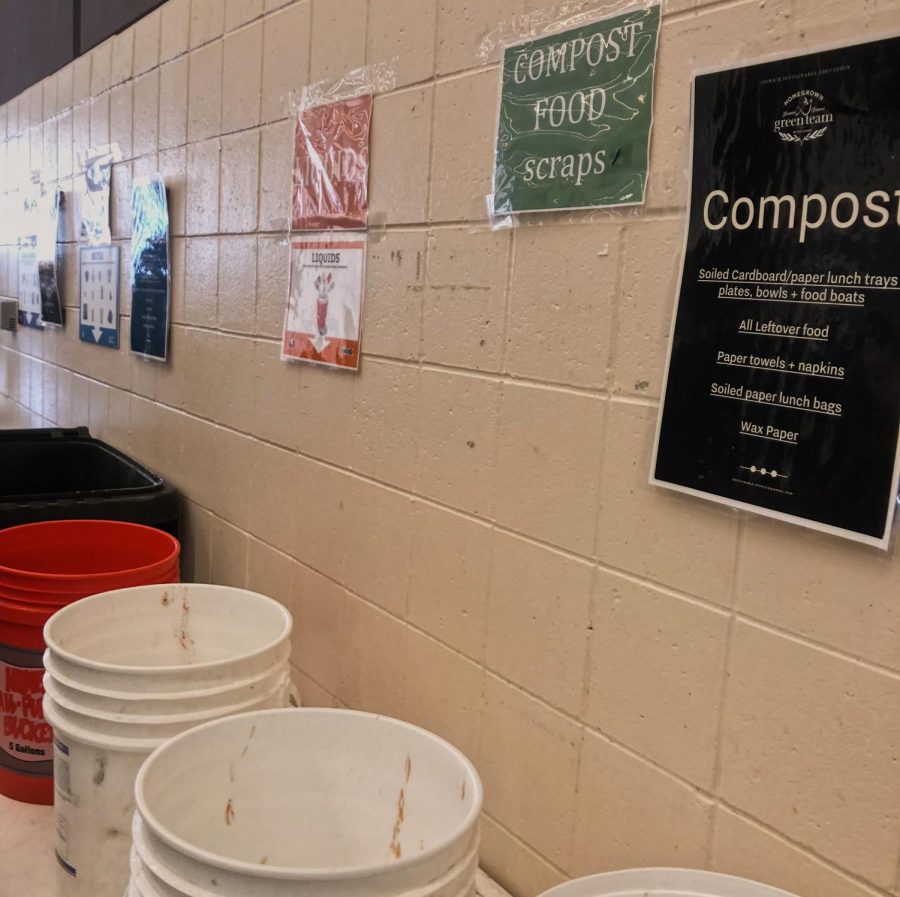
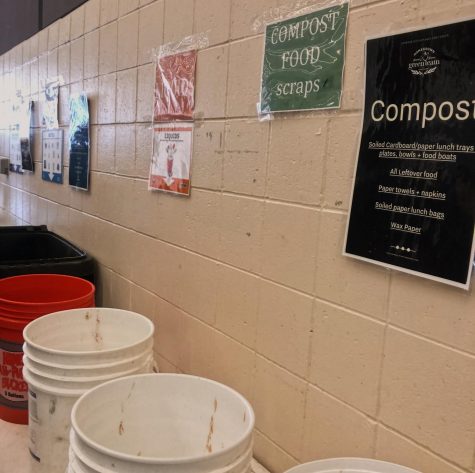

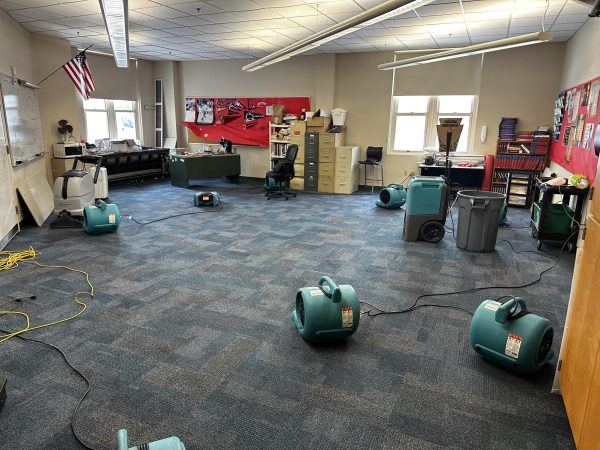
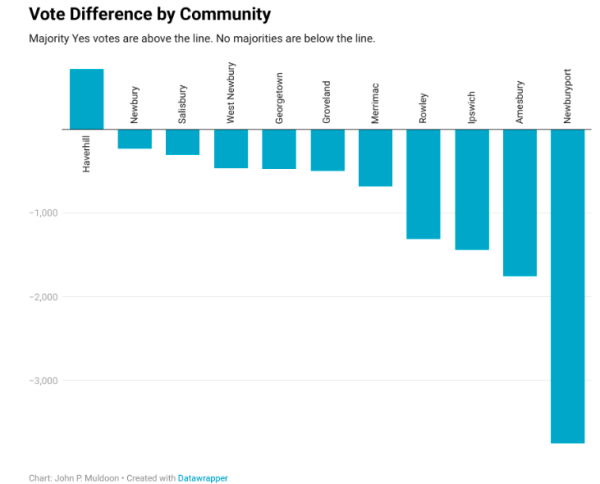


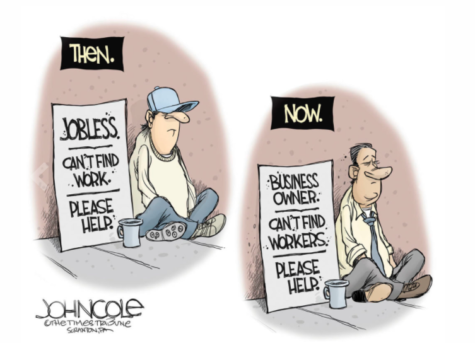
Mrs. Slawson • Dec 7, 2018 at 9:39 am
Thank you so much for shedding light on this topic, Shannon. Did you know that the city of Beverly recently began offering curbside collection for compostable kitchen waste? Black Earth Compost is a local company that is working to reduce the amount of food waste going into landfill. Have you thought about doing a follow up article on the work they are doing? I wonder if they’ve thought of expanding into other towns, like Ipswich.